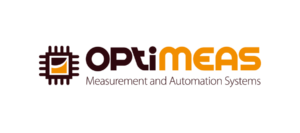Menu
Schließen
Schließen
Expert OPC UA Consulting and Development Services
In need of an OPC UA interface, a custom information model, or simply consultation on OPC UA implementation?
basysKom
Why choose services from basysKom?
- We have been working extensively with OPC UA since 2015.
- We have extensive experience in the fields of mechanical engineering, plant engineering, and measurement technology.
- We are a commercial support partner for the open-source open62541 stack.
- We actively contribute to OPC UA open-source solutions such as open62541 and Qt OPC UA.
- Our collaboration with our customers is individual, direct, and solution-oriented.
- We are experts in the technologies we use and provide technology-independent consulting.
-
Maintainers of the Qt OPC UA module.First Release in 2015
-
Commercial support partner of open62541.
-
Partner of UMATI.
-
Numerous successful projects.
Who are our customers?








Together We Are STRONG
How can we help you move forward?
Our services are tailored to your needs. Whether it's consulting, coaching, or complete project development, we adapt to your specific requirements.
basysKom
How Do We Work?
We always tailor our collaboration with you to be individual. In doing so, we adapt flexibly to your established workflows.
Transparency is important to us: We avoid waste and create value for you, the customer, early on. We are happy to work directly within your existing tool ecosystem and share your belief that regular, testable milestones ensure progress.
Regardless of the mode of collaboration, you will receive weekly reports detailing the efforts made and providing a budget overview.
OPC UA - Frequently Asked Questions (FAQ)
What Do We Really Need?
OPC UA is such a vast standard - What do we really need?
OPC UA is such a vast standard - What do we really need?
OPC UA covers a wide range of use cases for various industries – no one needs "everything." OPC UA is based on a core set of fundamental services implemented by the OPC UA SDK. The majority of the standard describes concepts realized through modeling based on the available services, which are also typically supported by the SDK. Profiles and facets subdivide the standard into feature sets, allowing for subsets of the total available functionality that enable an application to support OPC UA in a standard-compliant manner.
The individual effort in implementing an OPC UA application based on an SDK often involves only modeling and connecting the process data via callbacks.
We are happy to help you navigate the topic of OPC UA and identify the necessary parts of the specification for your specific application.
Where do we start?
We have received the requirement for an "OPC UA interface" - where do I start?
We have received the requirement for an "OPC UA interface" - where do I start?
First, it is necessary to distinguish whether a server or a client is needed. An OPC UA server is the more common and also more complex case, as data is not consumed from an existing server but must be provided in a suitably defined model.
Part 1 of the OPC UA specification describes the relevant fundamental concepts of OPC UA and is essential reading to get started on the topic without diving too deeply into technical details right away. We are happy to assist you with further orientation, concept creation, and implementation.
Open source or commercial?
Do I need to purchase an OPC UA stack, or can I use an open-source stack?
Do I need to purchase an OPC UA stack, or can I use an open-source stack?
The open source project open62541 is an OPC UA implementation in C99/C++98 for both client and server sides, which has grown over many years. It has an active developer community and an extensive ecosystem of companies and institutes that support its development with developer hours and offer commercial support and services around open62541.
Various developers at basysKom have contributed to the development of open62541, and many customers are happy with our custom applications based on open62541 and our ability to introduce bug fixes and new features into open62541 when necessary.
For OPC UA client applications based on the Qt framework (such as HMIs), there is the official Qt module Qt OPC UA, which is primarily developed and maintained by basysKom and is fundamentally based on the open62541 SDK.
We are happy to advise you on whether open62541, another open-source stack, or a commercial solution is the best fit for you.
Best Practices?
How should I map my data on the interface?
How should I map my data on the interface?
Firstly, it's advisable to review the list of available companion specifications to determine if there is already a suitable specification or if one of the base specifications (such as DI, Machinery, etc.) can be used as a building block. If creating a completely custom model without a base, the next step involves deciding the most logical data representation approach – whether to model the structure of a potential machine behind the model or to orient it around processes. Subsequently, gather the required data points and group them according to the chosen representation.
We are happy to assist you with our modeling expertise – feel free to reach out to us.
How do we model our data structures?
What modeling tools are available?
What modeling tools are available?
The leading tool in the field of commercial modeling tools is UaModeler by Unified Automation, but there are also other commonly used applications such as SiOME by Siemens.
Both tools share the capability to export standard-compliant files that serve as input to SDK-specific code generators for creating data types, decoders, encoders, and server address spaces.
We are happy to advise you – just reach out to us!
How do I design my software architecture?
How does the interface access the data from my control system?
How does the interface access the data from my control system?
If the OPC UA server is implemented as a separate process, an independent connection to the control system via a fieldbus or other communication protocols supported by the control system is recommended. If the server is to be integrated into an existing application, the existing APIs for communication with the control system can often be used.
Typically, OPC UA SDKs implement the connection of nodes to data sources using callbacks, allowing the developer to freely choose the most appropriate approach for reading and writing data on the control system.
We are happy to show you the optimal solution for your individual project.
What are companion specifications?
Our industry is developing a companion specification - how can we contribute as an equal partner?
Our industry is developing a companion specification - how can we contribute as an equal partner?
Companion specifications are a crucial component for enhancing the interoperability of OPC UA interfaces. Over recent years, many industries and interest groups have collaboratively developed such standards.
We help our clients protect their interests and contribute their ideas and needs to the standardization process. The client brings industry-specific expertise, while we provide OPC UA expertise. We are also happy to support you. Gerne unterstützen wir auch Sie.
UTILIZE OUR EXPERTISE
Our extensive experience makes us your perfect partner.
Example of our work
Discover our OPC UA reference
Foto: WEINIG Gruppe
basysKom provided the WEINIG Group with technical support in several important areas, drawing on our experience with OPC UA and the open62541 stack.
- Consulting on OPC UA modelling and overall experience with the technology
- Consulting on how to best utilize the open62541 stack
- Continuous prototyping efforts during the draft phase of the Wood Working Companion Specification
- Upstreaming of bugfixes for issues found in open62541 during the implementation of the various draft releases
- Development of custom client-/server-components for the final Wood Working Companion Specification based on the open62541 stack and Qt OPC UA
As a result of this continuous process, WEINIG was able to offer products with Wood Working Companion support the same day as the WWCS was published.
Manage your cookie preferences by clicking here.
